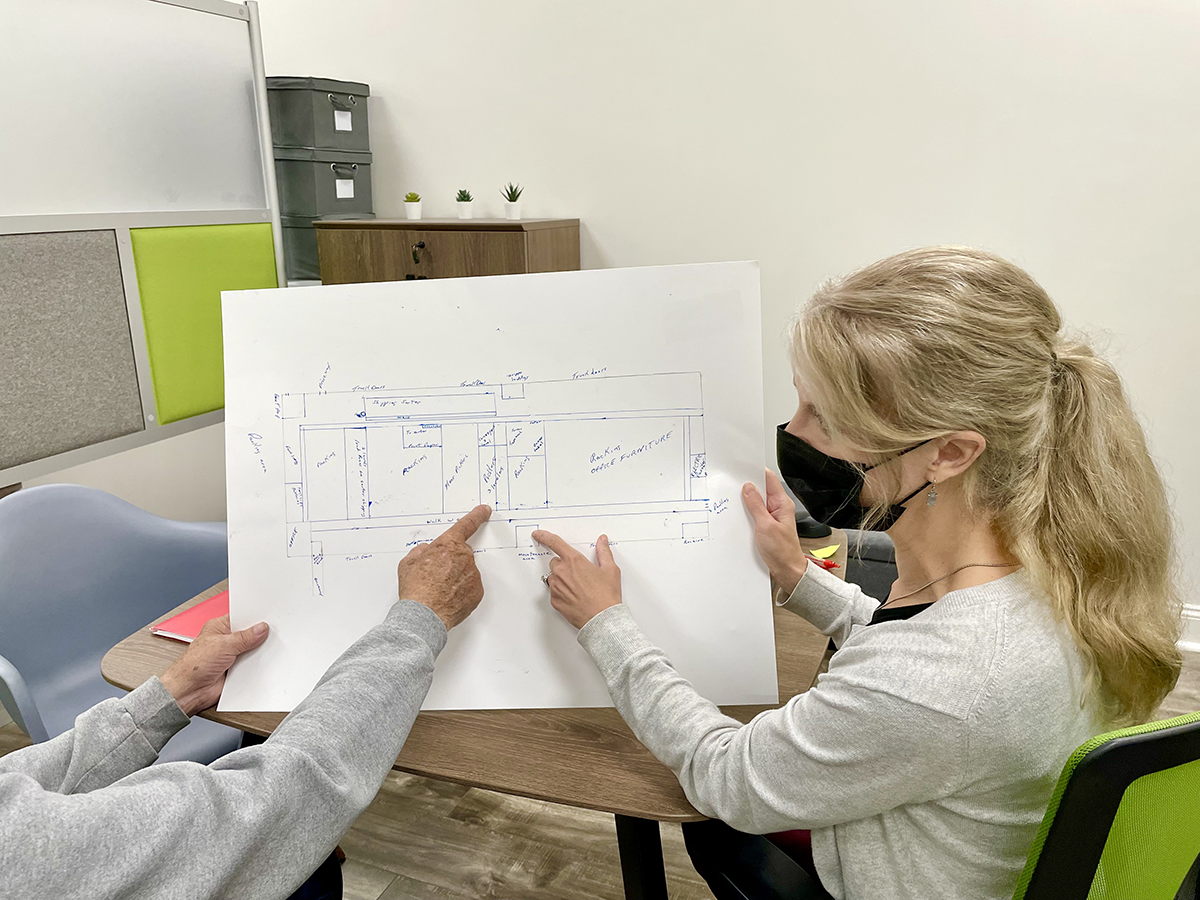Building therapy activities around patients’ jobs and interests is a fantastic way to help them regain lost language, an impairment known as aphasia, following a stroke. Aphasia can affect speaking, reading, writing, and understanding and occurs in an estimated 21-38% of patients who suffer a stroke. Aphasia can range in severity from occasional word finding problems to a complete absence of language skills. Immediate, intensive speech therapy is the best way to regain communication skills.

In this session, we started by watching a YouTube video about warehouses which helped us to practice key words related to shipping and receiving. This patient then took the word list home, created a diagram of a sample warehouse, and used the visual supports of the vocabulary list and warehouse drawing to explain the responsibilities of his job.
With other patients, sessions have included: Discussing cross-country travel, outlining how to shoot a bow and arrow, debating favorite restaurants in Carlisle, explaining the importance of rattlesnake conservation, walking through the steps of making puffy tacos and so many more fun and interesting topics.
Keeping patients and their families engaged and motivated is essential for optimal recovery. Using topics from their real lives creates meaningful therapy sessions that build the foundation for effective home programs. These home programs, completed with family support, are essential for steady progress and long-term gains in language skills.
If you or someone you know is struggling to communicate following a stroke, please call 717-906-8232 or email, megan@harmonyinmotiontherapy.com to discuss how we can help.

